(Promulgated on February 20th, 2006)
(Abstract: This Law fits in the framework of the continuous action of moralization the political, economic and financial life, led by the public authorities and for establishing conformity of our domestic legislation to the international instruments and obligations undertaken by our country. The major innovative elements introduced by this Law are the following. Firstly: A widest scope of application for the notion of corruption. Secondly: An extended definition of the public agent which includes the civil servants, either nationals or foreigners, the elected representatives, any person in charge of the management of a public service, concerning both public and private sectors. Thirdly: Concerning the preventive measures, the new Law imposes norms to different public administrations and other entities of the private sector by indicating to them guidelines in matter of recruitment, financial and administrative management. The law focuses also on the important role of the civil society including the media, through informing and increasing public awareness. Fourthly: the creation of a national organ in charge of the prevention and the fight against corruption. Fifthly: A very wide incrimination of the practices contrary to the integrity in the civil service and to the transparency of the public life in the political and economical sphere. Moreover, the new Law extends the incrimination of corruption to the conflict of interests, to the acceptance of presents prejudicial for the normal exercise of the function and to the occult financing of the political parties. Sixthly: the obligation for all public agents to declare their patrimony under penalty of disciplinary and penal proceedings. The Law represses thus the illicit enrichment and puts the burden of the proof on the public agent whose patrimony is proportionally more important than the legitimate incomes. Seventhly: furthermore, the Law provides dissuasive major and complementary penalties. Besides freedom deprived penalties, the courts may order the confiscation of the illicitly acquired properties, even if they have been subject of a transfer of property to relatives (descendants, ascendants or relatives by alliance Eighthly: the chapter of the Law related to the international cooperation and the recovery of assets deals with the aspects related to the exchange of information and to the mutual assistance for the purpose of seizure and confiscation, notably in the case of cross-borders crimes.)
The president of the Republic,
Considering the Constitution, particularly Articles 119, 120, 122-7 °, 126 and 132;
Considering the United Nations Convention against Corruption, adopted by the General Assembly of the United Nations in New York on 31 October 2003, ratified with reservations, by Presidential Decree No. 04-128 dated 29 Safar 1425 corresponding to 19 April 2004;Considering Ordinance No. 97-09 of 27 Shawwal 1417 corresponding to 6 March 1997 organic law on political parties;
Given Organic Law No. 04-11 of 21 Rajab 1425 corresponding to September 6, 2004 on the status of the judiciary;
Given Organic Law No. 04-12 of 21 Rajab 1425 corresponding to September 6, 2004 fixing the composition, functioning and powers of the Supreme Judicial Council;
Considering Ordinance No. 66-133 of 2 June 1966 amended and supplemented, on the general status of the civil service;
Considering Ordinance No. 66-155 of 8 June 1966, amended and supplemented, establishing the Code of Criminal Procedure;
Considering Ordinance No. 66-156 of 8 June 1966, amended and supplemented, establishing the Criminal Code;
Considering Ordinance No. 75-58 of 26 September 1975, amended and supplemented, bearing Civil Code;
Considering Ordinance No. 75-59 of 26 September 1975, amended and supplemented, on the Commercial Code;
Considering Law No. 79-07 of 21 July 1979, as amended and supplemented, on the Customs Code;
Considering Law No. 84-17 of 17 July 1984, amended and supplemented, concerning finance laws;
Considering Law No. 90-21 of 15 August 1990, as amended and supplemented, on public accounting;
Considering Ordinance No. 96-22 of 23 Safar 1417 corresponding to July 9, 1996, as amended and supplemented, on the suppression of infringement of the legislation and regulation of foreign exchange and capital movements to and from the abroad;
Considering Ordinance No. 97-04 of 2 Ramadhan 1417 corresponding to 11 January 1997 on the declaration of assets;
Considering Ordinance No. 03-11 of 27 Jumada Ethania 1424 corresponding to 26 August 2003 on money and credit;
Considering Law No. 05-01 of 27 Dhu Al Hijjah 1425 corresponding to 6 February 2005 on the prevention and fight against money laundering and terrorist financing;
After consulting the Council of State;
After adoption by Parliament;
TITRE I
Article. 1. .The Present Act is to:
. to strengthen measures to prevent and combat corruption;
. promote integrity, accountability and transparency in the management of public and private sectors;
. facilitate and support international cooperation and technical assistance for the prevention and the fight against corruption, including asset recovery.
Art. 2. .At the meaning of this Act, the term:
a) "" All offenses under Title IV of this Act.
b) "": 1 ° any person holding a legislative, executive, administrative, judicial, or at a local People's Assembly elected, whether appointed or elected, whether permanent or temporary, whether remunerated or not, and regardless of their seniority or seniority;
2. any other person invested with a function or mandate, even temporary, paid or unpaid, and contributes as such, the service of a public agency or public enterprise, or any other undertaking in which the state owns all or part of its capital, or any other company that provides a public service;
3. any other person defined as a public official or who is treated in accordance with the laws and regulations.
c) "" any person holding a legislative, executive, administrative or judicial office to a foreign country, whether appointed or elected; and any person exercising a public function for a foreign country, including for a public agency or public enterprise;
d) "" an international civil servant or any person authorized by such an organization to act on its behalf;
e) "": organized set of tangible and intangible elements or natural or legal persons, which pursues a specific objective;
f) "": all types of assets, tangible or intangible, movable or immovable, tangible or intangible, and legal documents or instruments evidencing title to such assets or rights thereto;
g) "" any property derived directly or indirectly from the commission of an offense or obtained, directly or indirectly, by the principal;
h) "" or "" temporarily prohibiting the transfer, conversion, disposition or movement of property or temporarily assuming custody or control of property by order of a court or another competent authority;
i) "": the permanent deprivation of property by order of a judicial body;
j) "" any offense as a result of which proceeds have been generated that may become the subject of money laundering in accordance with the legislation in force thereto;
k) "": the technique of allowing the exit of the national territory, the passage or the entry of illegal or suspicious shipments of being, knowledge and under the supervision of competent authorities, to investigate a offense and to identify persons involved in the commission;
l) "": the UN convention against corruption;
m) "": the national body for prevention and fight against corruption.
PART II
Art. 3. In the system of recruitment of public sector employees and to manage their careers, it is subject to the following rules:
1 the principles of efficiency, transparency and objective criteria such as merit, equity and aptitude,
2. appropriate procedures for the selection and training of individuals for public positions considered especially vulnerable to corruption,
3. Furthermore adequate treatment, adequate compensation,
4. the development of appropriate education and training programs to enable public officials to perform their functions in a correct, honorable and proper and have them receive specialized training that educates more corruption risks.
Art. 4.. It is made asset declaration obligation for public officials to ensure the
transparency of political and administrative life and the protection of public property and the preservation of the dignity of persons charged with a public mission.
The public official endorsed the declaration of assets in the month following its d.installation date or the exercise of his elective office.
In case of substantial change of its assets, the public official shall immediately, and in the same manner, the renewal of the initial declaration.
The declaration of assets is also established at the end of term or retirement.
Art. 5.. The declaration of assets, under section 4 above, concerns the inventory of movable and immovable property, located in Algeria and / or abroad, of which he is himself the owner including the ownership, as well as those belonging to his minor children.
The said declaration is made according to a model determined by regulation.
Art. 6.. The declaration of assets by the President of the Republic, members of parliament, the president and members of the Constitutional Council, the Head and members of the Government, the President of the Court of Auditors, the Governor of the Bank of Algeria, ambassadors and consuls and walis be made with the first president of the Supreme Court and the subject of a
publication in the Official Journal of the Democratic and Popular Republic of Algeria within two (2) months following their election or inauguration.
The declaration of assets of Presidents and elected members of local popular assemblies is performed before the body and is advertised by posters for a month at the headquarters of the municipality or the province, as applicable.
The magistrates of the declaration of assets is done at the first president of the Supreme Court.
The terms of the declaration of assets for other public officials are determined by regulation.
Codes of conduct for public officials.
Art. 7. In order to strengthen the fight against corruption, the State, the elected assemblies, local authorities, institutions and public bodies, as well as public companies with economic activities should encourage integrity, honesty and responsibility of their agents and their elected by adopting, in particular, codes and rules of conduct for the correct, honorable and proper performance of public functions and elective offices.
Art. 8. When private interests of a public official coincide with the public interest and are likely to influence the normal course of his duties, the latter shall inform his higher authority.
The procurement
Art. 9. The procedures for public procurement should beings based on transparency, fair competition and objective criteria. As such, they contain include:
disseminating information about public procurement procedures;
- The prior establishment of conditions for participation and selection;
- The objectives and specific criteria for making decisions concerning the award of public contracts;
- The exercise of any remedy in case of non-compliance with procurement rules for public contracts.
Management of public finances
Art. 10. Appropriate measures to promote transparency, accountability and rationality in the management of public finances are taken in accordance with the laws and regulations in force, especially in the rules relating to the preparation and execution the state budget.
Transparency in relations with the public
Art. 11. In order to promote transparency in governance, institutions, administrations and public bodies are obliged mainly:
- Adopting procedures and regulations to enable users to obtain information on the organization and functioning of decision-making processes of public administration, simplify administrative procedures, to publish awareness about the risks of corruption in public administration,
- Responding to queries and complaints of citizens,
- To give reasons when they are unfavorable to the citizen and to clarify the existing remedies.
Action on the body of magistrates
Art. 12.. In order to protect the body of the judiciary risk of corruption, rules of conduct are established in accordance with laws, regulations and other applicable laws.
Private sector
Art. 13.. Measures for the Prohibition of corruption in the private sector are taken and
effective, proportionate and dissuasive disciplinary sanctions are provided, if necessary, in case of non-compliance with these measures.
The measures taken for this purpose should include in particular:
1 strengthening cooperation between detection and law enforcement agencies and relevant private entities;
2. promote the development of standards and procedures designed to safeguard the integrity of relevant private entities, including codes of conduct for business and all relevant professions operate a correct, honorable and adequate to prevent conflicts of interest and to encourage the implementation of good commercial practices among businesses and in the contractual relations with the State;
3. promote transparency among private entities;
4. prevention of the misuse of procedures regulating private entities;
5. implementation of internal audits to private companies.
Accounting Standards
Art. 14.. Accounting and auditing standards-used in the private sector must help to prevent corruption by prohibiting:
1. the establishment of off-books;
2 operations off the books or inadequately identified;
3. recording of non-existent expenditures or liabilities whose object is not properly identified;
4. the use of false documents;
5. the intentional destruction of bookkeeping documents before the end of time under the laws and regulations.
The participation of civil society
Art. 15.. The participation of civil society in the prevention and the fight against corruption is encouraged through:
. transparency of decision-making and promoting the participation of citizens in governance;
. teaching, education and awareness on the dangers of corruption for society;
. effective access of the media and the public to information on corruption subject to the protection of private life, honor, dignity and requirements of national security, public order as well as impartiality of justice.
Measures to prevent
money laundering
Art. 16.. To strengthen the fight against corruption, banks, nonbank financial institutions, including natural or legal persons that provide formal or informal services for the transmission of money or value, are subject, according to the laws and regulations in force, an internal control regime to deter and detect all forms of money laundering.
PART III
NATIONAL BODY AND PREVENTION
FIGHTING CORRUPTION
The institution of the organ of prevention
and fight against corruption
Art. 17.. For carrying .uvre of the national strategy on corruption, there shall be a
body responsible for the prevention and fight against corruption.
The legal regime of the organ
Art. 18.. The body is an independent administrative authority with legal personality and financial autonomy, placed under the President of the Republic.
The composition, the organization and the organ functioning are established through
regulatory.
The autonomy of the organ
Art. 19.. The autonomy of the body is guaranteed in particular by taking the following measures:
1. sworn members and officials of the organ authorized to access personal data and, in general, any confidential information before installation in office.
The oath is fixed by regulation.
2. Staffing the organ in human and material resources necessary to carry out these missions;
3 ° adequate training and high-level personnel within the body;
4 ° security and protection of members and officials of the body against any form of pressure or intimidation, threats, contempt, insults or attacks of any kind which they may be subject during or the opportunity to exercise their missions.
Organ of the missions
Art. 20. The body is responsible include:
1. To propose a comprehensive policy for preventing corruption dedicating state principles of law and reflecting the integrity, transparency and accountability in the management of public affairs and public property;
2 ° to provide advice on the prevention of corruption to any person or public or private organization and recommend measures, including legislative and regulatory issues, prevention of corruption as well as to cooperate with public and private sectors in the development of rules of conduct;
3. Develop programs for the education and awareness of citizens about the harmful effects of corruption;
4. To collect, centralize and exploit any information that can be used to detect and prevent
acts of corruption, including search in legislation, regulations, procedures and administrative practices, corruption factors in order to provide recommendations to eliminate them;
5. Periodically assess the legal instruments and administrative measures in this area to determine their effectiveness in the field of prevention and fight against corruption;
6. To collect, periodically and subject to Article 6 (paragraphs 1 and 3) above, asset declarations of public officials, to examine and use the information they contain and to ensure their preservation;
7. In use the prosecution to collect evidence and to conduct investigations into corruption;
8. Ensure the coordination and monitoring of activities and actions taken on the ground based on regular and periodic reports with statistics and analyzes relating to the field of prevention and fight against corruption as he targeted sectors and stakeholders;
9 ° To ensure better intersectoral coordination and development of cooperation with entities in the fight against corruption, both at national and international levels;
10 ° To create any research activity and evaluation of the actions undertaken in the field of prevention and fight against corruption.
Communication documents
and information to the organ
Art. 21.. As part of the exercise of missionsvisées in section 20 above, the member can request administrations, institutions and public or private organizations or any natural or legal person to provide any document or information it deems for the detection of corruption.
The deliberate and unjustified refusal to communicate to the body of the information and / or documents required is an offense of obstructing justice in the sense of this Act.
The relationship of the body with the legal authority
Art. 22.. When the body finds that the facts may constitute a violation of criminal law, the matter is referred to the Minister of Justice, Keeper of the Seals, who seized the competent public prosecutor for the purpose of setting in motion the prosecution, the optionally.
Professional secrecy
Art. 23.. All members and officials of the body, even after cessation of activity, are obliged to maintain professional secrecy.
Any violation of the obligation referred to in the previous paragraph is an offense punishable by the same penalties
under the Penal Code for the disclosure of confidential information.
The presentation of the annual report
Art. 24.. The organ address to the President of the Republic an annual report evaluating the activities related to the prevention and the fight against corruption, shortcomings in this area and the proposed recommendations, if any.
TITLE IV
OF OFFENCES, PENALTIES
AND MEANS OF INVESTIGATION
bribery of public officials
Art. 25.. A penalty of imprisonment of two (2) to ten (10) years and a fine of 200,000 to 1,000,000 DA DA:
1. The promise of offering or giving to a public official, directly or indirectly, of an undue advantage, either for himself or for another person or entity, for him or refraining from acting in the exercise of its functions;
2. The fact that a public official to solicit or accept, directly or indirectly, of an undue advantage, for himself or for another person or entity, so that he or refrain from doing act relating to his duties.
Unjustified advantages in public procurement.
Art. 26.. A penalty of imprisonment of two (2) to ten (10) years and a fine of 200,000 to 1,000,000 DA DA:
1. Any public officer who goes aims or revises a contract, an agreement, a contract or an amendment in violation of laws and regulations in force in order to provide others an unfair advantage;
2. Any trader, manufacturer, artisan, private contractor, or in general, any natural or legal person that passes, even occasionally, contract, or a contract with the state, local authorities, institutions or organizations public law, public economic enterprises and public industrial and commercial, building on the authority or influence of agents of these bodies to increase the prices they normally practice and usually or change, their advantage, the quality of commodities or services or delivery or supply.
Corruption in public procurement
Art. 27. Is punished with imprisonment of ten (10) to twenty (20) years and a fine of 1,000,000 to 2,000,000 DA DA any public official who, during the preparation, negotiation of the conclusion or performance of a contract, agreement or endorsement concludes on behalf of the State or local authorities or public administrative institutions or
public industrial and commercial or economic public companies, collects or attempts to collect, directly or indirectly, to himself or to a third party, remuneration or benefit of any kind whatsoever.
Bribery of foreign public officials
and officials of organizations
public international
Art. 28. A penalty of imprisonment of two (2) to ten (10) years and a fine of 200,000 to 1,000,000 DA DA:
1. The promise, offering or giving to a foreign public official or an official of a public international organization, directly or indirectly, of an undue advantage, for himself or for another person or entity, for doing or forbearing to do
acting in the exercise of its functions, in order to obtain or retain business or other improper advantage in relation to international trade or other.
2. The fact that a foreign public official or an official of a public international organization to solicit or accept, directly or indirectly, of an undue advantage, for himself or for another person or entity to performing or forbearing to do an act relating to his duties.
Subtraction or illegal use of property
by a public official
Art. 29. A penalty of imprisonment of two (2) to ten (10) years and a fine of 200,000 to 1,000,000 Da, any public official, which subtracts, destroyed, dissipated or retains knowingly and improperly in his benefit or the benefit of another person or entity, any property, money or securities, public or private, or anything of value that were given to him either under or by reason of his duties.
The concussion
Art. thirty. . Is guilty of extortion and sentenced to imprisonment for two (2) to ten (10) years and a fine of 200,000 to 1,000,000 DA DA, any public official who solicits, receives, demands or orders to collect it he knows is not due or exceed what is due either to himself or to the administration or to the parties for which it collects.
Exemptions and illegal franchises
Art. 31.. Is punished by imprisonment of five (5) to ten (10) years and a fine of 500,000 to 1,000,000 DA DA, any public official who will, in any form whatsoever and for any reason , without authorization by law, granted or ordered to levy exemptions and franchise fees, taxes or state taxes, or made free products issuing of state institutions.
Influence peddling
Art. 32.. Is punished with imprisonment of two (2) to ten (10) years and a fine of 200,000 to 1,000,000 DA DA:
1. The promise, offering or giving to a public official or any other person, directly or indirectly, of an undue advantage to the said agent or the person abuse his real or supposed influence with a view to obtaining from an administration or public authority an undue advantage for the original instigator of the act or for any other person.
2. The fact that a public official or any other person for soliciting or accepting, directly or indirectly, of an undue advantage for himself or for another person to abuse his real or supposed influence with a view to obtaining from an administration or public authority an undue advantage.
Abuse of functions
Art. 33.. Is punished with imprisonment of two (2) to ten (10) years and a fine of 200,000 to 1,000,000 DA DA, the fact that a public official intentionally abusing office or position by performing or failing to perform in the exercise of his functions, act in violation of laws and regulations in order to obtain an undue advantage for himself or for another person or entity.
Conflict of interest
Art. 34.. Failure by the public official of Article 9 of this Act is punishable by imprisonment of six (6) months to two (2) years and a fine of 50,000 DA to 200,000 DA.
The illegal interest
Art. 35. A penalty of imprisonment of two (2) to ten (10) years and a fine of 200,000 to 1,000,000 DA DA, any public official who, directly or through other persons or by simulated act , will be taken, received or retained any interest whatsoever in the acts, auctions, tenders, companies which he had at the time of the act in whole or part, administration or supervision or who, having mission or schedule the payment to the settlement of a case, there will have taken an interest.
The defect or the false declaration of assets
Art. 36. A penalty of imprisonment for six (6) months to five (5) years and a fine of 50,000 DA to 500.000 DA, any public official, legally subject to a declaration of assets, which two (2 ) months after a recall by legal means, knowingly, will not make a statement of its assets, or has made an incomplete, inaccurate or false, or made false observations that will deliberately or knowingly violated the obligations imposed by the law.
illicit enrichment
Art. 37. A penalty of imprisonment of two (2) to ten (10) years and a fine of 200,000 to 1,000,000 DA DA, any public official who can not reasonably justify a substantial increase of its heritage over his legitimate income.
The same penalty enacted for the concealment provided by this Act, any person who knowingly contributed by any means whatsoever to conceal the illicit origin of the property referred to in the preceding paragraph.
The illicit enrichment, referred to in paragraph 1 of this article, is a continuous infringement characterized by the detention of illegal goods or their jobs directly or indirectly.
Gifts
Art. 38. A penalty of imprisonment for six (6) months to two (2) years and a fine of 50,000 DA to 200.000 DA, the fact by a public official to accept a person a gift or advantage undue likely to influence the treatment of a process or transaction related to its functions.
The donor is the same penalties referred to in the preceding paragraph.
The secret funding of political parties
Art. 39. Without prejudice to the criminal provisions relating to the financing of political parties, any occult operation to finance a political party is punishable by imprisonment of two (2) to ten (10) years and a fine of DA DA 200,000 to 1,000,000.
Corruption in the private sector
Art. 40.. A penalty of imprisonment for six (6) months to five (5) years and a fine of 50,000 to 500,000 DA DA:
1. The promise, offering or giving, directly or indirectly, of an undue advantage to any person who directs a private sector entity or work for such an entity in any capacity whatsoever for itself or for another person to act or refrain from acting in breach of his duties;
2. the fact that a person who runs a private sector entity or work for such an entity in any capacity whatsoever, solicit or accept, directly or indirectly, of an undue advantage, for himself or louse





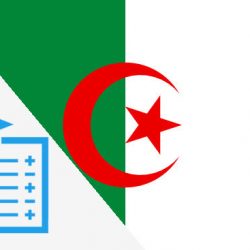
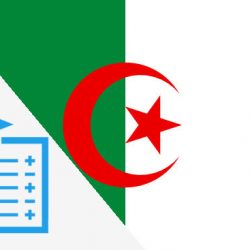
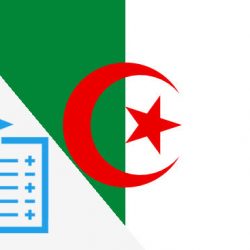
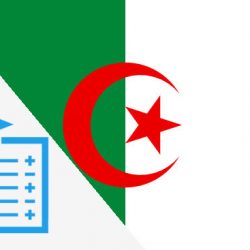
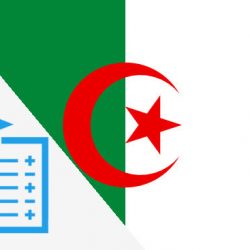
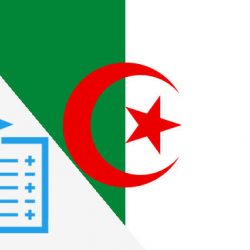
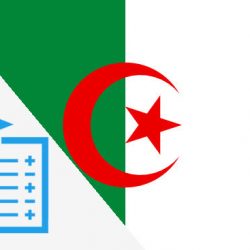
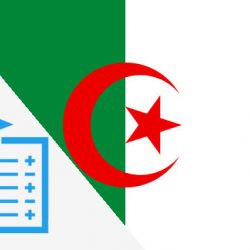
 We will not leak your personal information
We will not leak your personal information